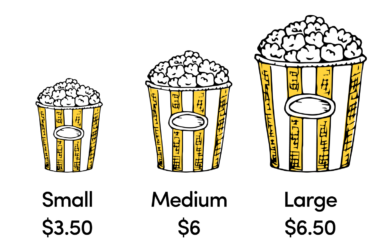Introduction: Rational in Theory, Irrational in Practice
In theory, managing money is straightforward: spend less than you earn, invest the rest, and plan for the future. Yet, many people struggle with saving, tend to overspend, or make emotional investment choices in reality. Why is this the case? Because financial decisions involve much more than just numbers; they are influenced by psychological factors, emotions, and perceptions. Modern behavioral finance offers a valuable perspective to understand this disconnect. Unlike traditional economic theory, which assumes that people act rationally, behavioral finance highlights the cognitive and emotional biases that can lead to poor financial decisions. This article examines key psychological traps, such as loss aversion, mental accounting, present bias, and fear of missing out (FOMO), and provides insights on how to maintain financial well-being.
The Myth of the Rational Investor
Traditional economics is based on the assumption of rational choice, meaning that people weigh costs and benefits before making decisions. However, Nobel laureate Richard Thaler and others have shown that this is not how humans actually behave. In his book Misbehaving (2015), Thaler describes people as “predictably irrational,” particularly regarding money. Behavioral economists, such as Daniel Kahneman and Amos Tversky (1979), further explained that we often rely on mental shortcuts that lead to consistent errors in judgment. These errors are not random; they follow recognizable patterns. Therefore, many people end up buying when prices are already expensive and selling when they are falling. Understanding these patterns is the first step toward improving our financial behavior.
Loss Aversion: Losing Hurts More Than Winning Feels Good
Loss aversion is the concept that we feel the pain of losses more intensely than we experience pleasure from equivalent gains. For instance, losing $100 is more distressing than the happiness we get from gaining $100. This idea was explored by Kahneman and Tversky (1979) in their prospect theory, which illustrates that losses can feel up to twice as impactful as gains. In personal finance, this bias often results in excessive risk aversion. Individuals may choose to avoid investing altogether due to the fear of losing money, even when long-term market trends are favorable. Alternatively, they might also hold on to poor investments to avoid realizing a loss, even when better opportunities exist elsewhere.

Mental Accounting: Not All Dollars Are Treated Equally
Mental accounting is the tendency to treat money differently based on its source or intended use. For example, a tax refund is often perceived as “free money” and is typically spent more freely than regular income, even though every dollar is technically the same. This bias can distort budgeting decisions. For instance, someone might refuse to use their savings for an urgent emergency because they believe that money is meant for a vacation, even if addressing the emergency is more crucial. Similarly, they might overspend a bonus while still carrying high- interest credit card debt.
Present Bias: Today Always Wins
Present bias is the tendency to prefer immediate satisfaction over long-term benefits. This explains why people often choose to spend money now rather than save for retirement, even when they know it would be wiser to save. Present bias makes it difficult to stick to financial goals, particularly long-term objectives like investing and saving. The discomfort of giving something up now, like a fancy dinner or a new phone, often feels more significant than the abstract reward of a more secure financial future.
Fear of Missing Out: Following the Crowd
FOMO pushes people to follow trends, particularly in investing, based on what others are doing instead of making careful decisions. This was clear during the GameStop case in 2021 and the rise of meme coins like Dogecoin. Many investors, influenced by social media hype, bought at high prices, fearing they would miss quick returns. FOMO leads to bubbles, encourages reckless behavior, and eventually results in regret.
Fixing the Way We Think About Money
Education plays a subtle but vital role. OECD policy papers highlight that financial education, supported by behavioral insights, can help people overcome harmful habits like procrastination and impulsive spending. While financial literacy alone does not fix all irrational behaviors, it helps people become aware of their instincts, which is the first step toward making better choices. When individuals recognize that their instincts can mislead them, they are more likely to take a moment to think before acting. This moment of pause is what separates automatic actions from deliberate financial decisions. Yet, understanding our financial biases is only the first step. The real challenge lies in training our minds to resist them. Our money habits are deeply rooted, but they can be changed. Just like physical habits, we can reshape our thinking with intentional effort and support.
One of the most effective strategies is to create default systems that reduce emotional reactions. For example, automating savings or investments takes away the stress of making choices when fear or temptation might strike. Transferring money to a retirement account before it reaches a checking account helps people avoid the urge to spend it right away. Another useful method is framing and visualization. Financial goals become clearer when we express them in specific terms. For instance, instead of just saving for “the future,” one might save a debt-free home by age 40 or to have a six-month emergency fund. The clearer the goal, the easier it is to stay focused and resist short-term temptations.
Lastly, reflection and emotional distance matter. The best investors are often those who understand themselves, not just the markets. Keeping a written record of financial decisions or reviewing past choices can help identify both good and bad patterns, making it easier to handle future challenges with greater awareness. Improving our financial habits is not about becoming perfectly rational. It is about understanding our limits and creating systems that work with them, not against them. This approach is how we can make better financial choices that last over time.
Conclusion: Mastering Mindset is Key to Mastering Money
At its core, financial success is not just about numbers; it’s also about behavior. This behavior is influenced by psychology, particularly our fears, habits, and instincts. Understanding cognitive biases, such as loss aversion, mental accounting, present bias, and FOMO not only makes us smarter, but it also enhances our financial resilience. By recognizing our irrational tendencies, we empower ourselves to overcome them. While managing money is never a purely rational process, with the right tools and mindset, it can certainly become much wiser.
References
Kahneman, D., & Tversky, A. (1979). Prospect theory: An analysis of decision under risk. Econometrica, 47(2), 263–292. https://doi.org/10.2307/1914185
Thaler, R. H. (2015). Misbehaving: The making of behavioral economics. W. W. Norton & Company.









